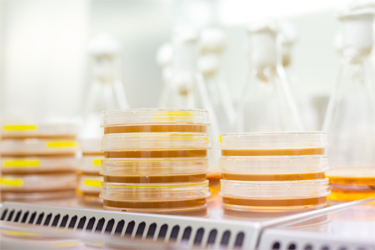Metabolite And Nutrient Analysis As Crucial Components For Optimal Upstream Process
Prepared By Małgorzata Nosek, Biotechnologist; Olga Grzyb, Junior Biotechnology Specialist; and Adam Tuszyner, Registration Documentation Specialist, Pharmacovigilance Specialist

Metabolites, naturally occurring compounds essential for biochemical pathways, play vital roles in cell culture for producing therapeutic proteins like monoclonal antibodies (mAbs). The composition of culture media and feeds significantly impacts bioprocess outcomes, including duration, productivity, and protein quality.
Mammalian cells, particularly Chinese Hamster Ovary (CHO) cells, are favored for their ability to perform critical posttranslational modifications necessary for therapeutic efficacy and safety. Understanding CHO cell metabolism aids in optimizing culture conditions, with glucose and glutamine being primary energy sources. Various components like amino acids, lipids, vitamins, salts, trace elements, and growth factors are also crucial for cell growth and protein production. Metabolite concentrations affect cell viability, productivity, and product quality, necessitating careful control in culture media. Strategies such as adjusting glucose levels to mitigate lactate accumulation and managing ammonia concentrations to prevent growth inhibition are employed.
Discover how insights into cell metabolism can further enable the development of efficient cell culture processes through tailored nutrient supplementation and monitoring by accessing the article below.
Get unlimited access to:
Enter your credentials below to log in. Not yet a member of Bioprocess Online? Subscribe today.
